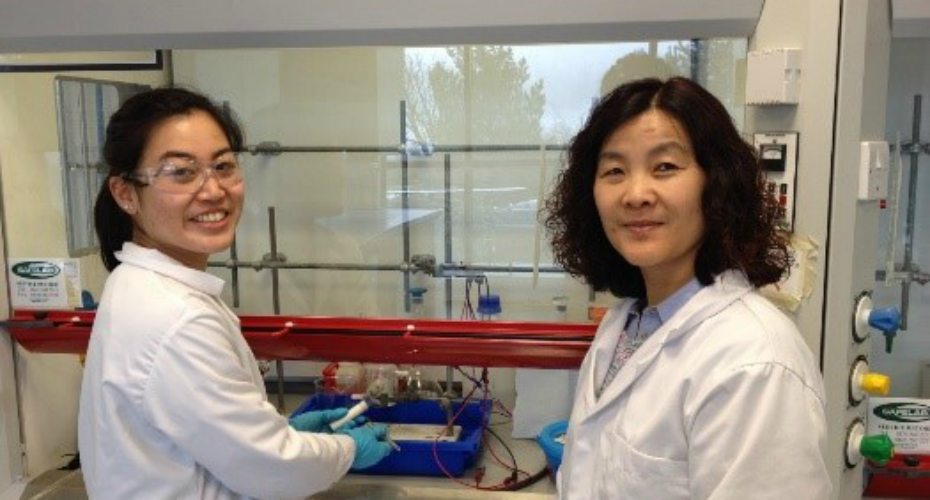Professor Xiaohong Li, Professor in Energy Storage Technology, Director for Global Development in Renewable Energy Group
We all know that carbon emissions are playing a major role in the breakdown of the global climate, but research taking place at the University of Exeter’s Penryn Campus is looking to combat this, by developing an entirely green energy source.
Professor Xiaohong Li, Professor in Energy Storage Technology and Director for Global Development, is currently researching how to use renewable energy to produce hydrogen. Hydrogen is used as a fuel in fuel cell electric vehicles and other energy storage devices, and can be used in processes such as making ammonia for use in agriculture. At present, global hydrogen is produced using fossil fuels, known as “black hydrogen”; as opposed to the “green hydrogen” which Professor Li makes using renewables.
A key aspect of Xiaohong’s work is to make the production of green hydrogen more efficient and affordable. This involves finding cheaper and more abundant metals to use as a catalyst in the production process. Traditionally, precious metals such as platinum or palladium have been used, but Professor Li’s work has investigated using more available metals such as nickel, iron, or cobalt to reduce the costs, and make the technology more available. The end aim of the research is to be able to demonstrate the technology, so that it can be adopted and scaled up by industry. As Professor Li says, her role in the process is to “make the recipe” for a technology that could soon help us all dramatically decrease our carbon emissions.
With technology like this making rapid gains around the world, Professor Li believes that huge change is coming to the UK. At present the UK imports batteries from Asia, but a new battery gigafactory constructed in Coventry will change this, and bring world-leading testing facilities and engineers to the country. Professor Li emphasises the point that we need to make the batteries as sustainable as possible from the outset, for example by moving away from using less-common materials such as lithium, to batteries made from more common elements, such as sodium ion. This is another important aspect of her work, and highlights the depth to which her research is going in order to find sustainable energy solutions for the future.
It’s a future that Professor Li is optimistic about, and she remains enthusiastic that we can meet the energy challenge of the future. Her students are very interested and engaged in the work she’s been doing, technology has come a long way in the last decade, and Government also appears to be taking the challenge seriously. In Professor Li’s words, energy storage is the greatest technology available to us today – if we can continue to grow and develop this technology, we may be able to look forward to a much greener future.

